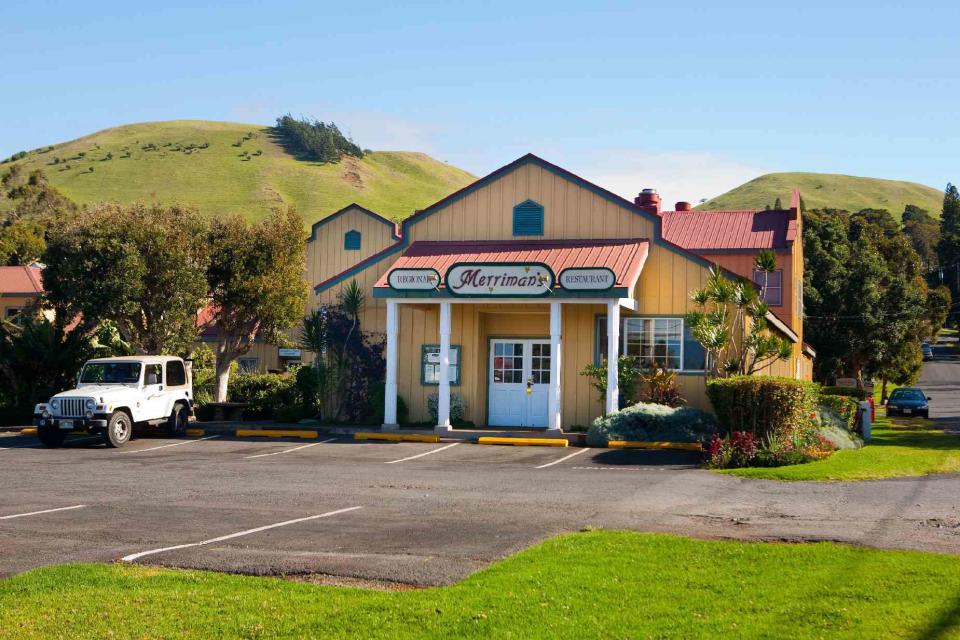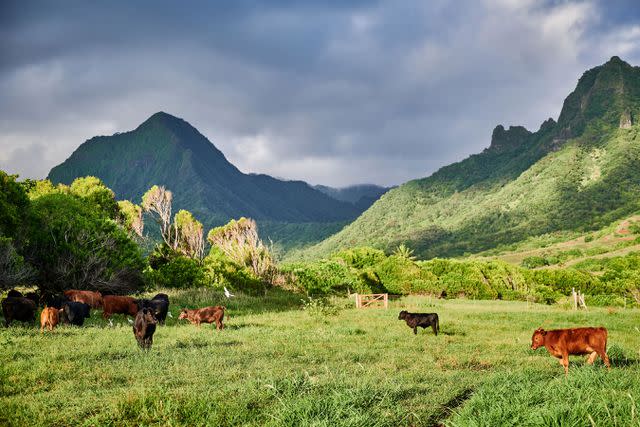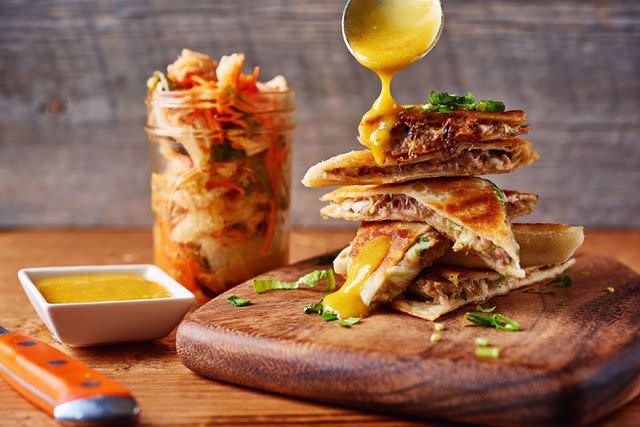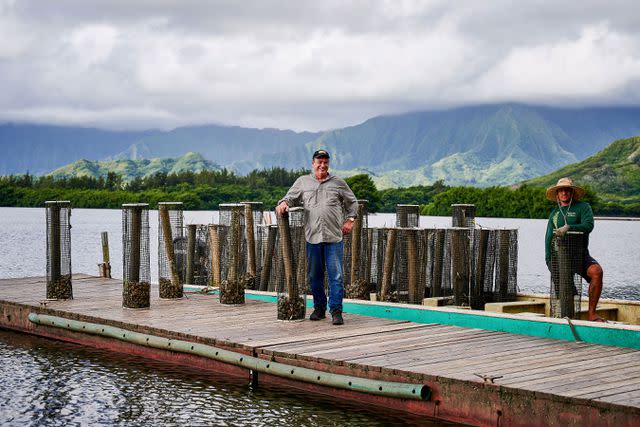Hawai'i Has Its First Carbon Neutral Restaurant, Thanks to Goats
Seaweed-fed goats, lighter wine bottles, and solar panels are among the many reasons this iconic restaurant has become carbon neutral.

Courtesy of Merriman's Hawaii
When Peter Merriman opened his eponymous restaurant on Hawai'i’s Big Island in 1988, the chef was an early champion for working with local farmers and fishermen. Thirty-five years later, and with the help of solar panels, lighter wine bottles, and a new seaweed diet for goats, Merriman’s Waimea just became the state’s first carbon neutral restaurant.
“The restaurant business is a reflection of society, and [sustainability] is important for our industry, not just in Hawai'i, but all over,” says Merriman. “We can at least do our part.”
The first step to doing their part was understanding the restaurant’s existing environmental impact. “You have to measure your carbon footprint to figure out how to improve your footprint,” says the chef. Merriman and his team partnered with GreenPlaces, an organization that helps restaurants, hotels, and other businesses become more sustainable.

Courtesy of Merriman's Hawaii
Some of the initiatives it took to get Merriman’s Waimea to carbon neutrality have been in place for years, including installing solar panels on their buildings and sourcing ingredients responsibly. The restaurant group works with local farmers and vendors, and nowadays 90% of the ingredients they use either come from Hawai'i or are sustainably caught. At the Big Island location, an on-site garden grows fruits and herbs for the menu, too. (Merriman was part of a group of chefs who established the Hawai'i Regional Cuisine movement three decades ago.)
The most surprising way the restaurant group is cutting carbon emissions, though, is goat-related. Merriman’s, working with two local orgs, will roll out “carbon-friendly” goat cheese. The cheese is made using milk from the herd at Hawaii Island Goat Dairy, which is fed limu kohu seaweed from Blue Ocean Barns. The particular diet helps cut the goats’ methane emission by 85%. I.e., goats eat special seaweed and, as a result, are less gassy. (Livestock is a major source of methane gas emissions in the U.S.) The seaweed is also popular for humans, too — the chef calls limu kohu “the perfect seaweed to put on your poke.”
Related:The Real Flavor of Maui Is Found at the Farmers Market
Other recently-launched sustainability measures involve working to reduce the weight of wine and liquor bottles. According to a study examining California wine’s carbon footprint, weighty glass bottles are responsible for 29% of wine’s carbon footprint — the heavier the bottle, the more carbon emissions are expended in creating and shipping it.

Courtesy of Merriman's Hawaii
About 25% of the restaurant’s wine bottles now weigh three pounds or less, but Merriman’s is also working toward rethinking the vessels in general, including working with local wineries and distillers to implement biodegradable packaging, and even envisioning a whole new operating system.
“If there were reusable, standardized containers, it would help phenomenally,” the chef says. “They could go all the way down to packaging for everything from water to sodas, everything that we get in a restaurant.”
Related:Explore Lee Anne Wong's Best Spots in Honolulu
Merriman and his team are also in the process of rolling out new sustainability initiatives, including replacing the kitchens’ natural gas stoves — which they discovered to be the organization’s third largest carbon emission output — with electric induction stoves, which are currently the most energy efficient on the market.
As Merriman and his team are still working toward cutting their own emissions, they offset 516 metric tons of carbon in 2022, with the help of GreenPlaces, working with a forestry project on Prince of Wales Island in Alaska and a rainforest project in northern Brazil. This year, though, they’re looking to offset carbon closer to home, too.

Courtesy of Merriman's Hawaii
Living on a remote island, thousands of miles from another land mass, conservation has long been rooted in Hawaiian culture. Native Hawaiians considered themselves stewards of the land, according to Merriman, taking care of it for their children, grandchildren, and great grandchildren.
Related:19 Of the Best Sustainably Farmed Wines to Drink Now
“Your little plot where you grew your taro was called your kuleana, and so that kuleana has come to mean responsibility,” he says. “As a restaurateur in Hawai'i, I have a kuleana to help protect the islands and do as much as we can for the entire planet.”
For more Food & Wine news, make sure to sign up for our newsletter!
Read the original article on Food & Wine.

